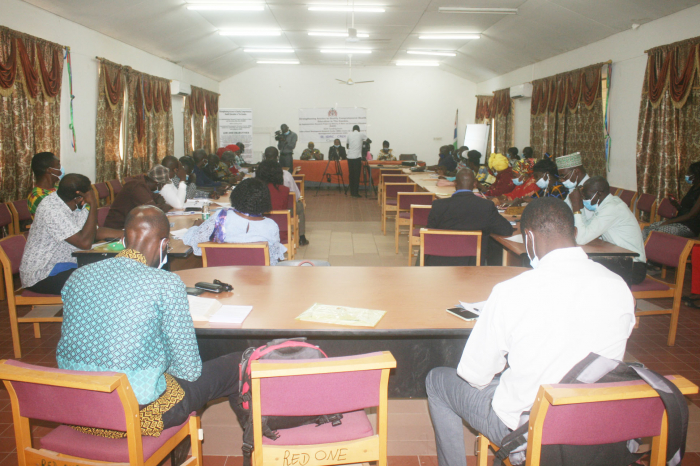
Strengthening Access to Quality Comprehensive Health Education (CHE) in The Gambia is a research project conducted by Ministry of Basic and Secondary Education and funded by International Development Research Center (IDRC), Canada.
The research aims to identify the underlying factors that affect the implementation of Comprehensive Health Education (CHE) for adolescents in-and-out of school.
More so, it is also designed to implement relevant school and community-based programs that will include teacher and community-based trainings on sexuality education and sessions with adolescents and youth networks to strengthen access to quality Comprehensive Health Education (CHE).
Speaking at the ceremony, Mrs Fatou Dally Bittaye on behalf of director of CREDD, elaborated on the findings of the research. The research, she said, was conducted few months ago and some of the school principals participated with some schools in Region 1 used in collecting data and information.
She defended their inclusion with regards to sharing of the findings and outcome of the study for better implementation.
Mr Ousman Bah, director of Education Region 1 recalled that in the past, the country struggled for a Comprehensive Health Education as several initiatives were carried out.
“Those initiatives included the population family life education (POP/FLE) whereby materials were developed and teachers were trained and it was put into the school system.” he noted.
Bah observed that all these were intervention because these were reproductive issues that are very important to the public, particularly boys and girls in our school system.
Sharing their findings with the school principals, Mrs Phebian Ina Grant-Sagnia, principal investigator for the project in Region I, explained that methodological approach for the research was divided into phases.
On the quantitative study findings, she said, the survey was conducted in 43 schools. Most of the schools surveyed are public - 53.49% and mixed schools – 69.77%.
The study, which focused on group discussions with adolescent boys and girls, found that adolescent communication about sexual and reproductive health issues including discussions on menstruation, prevention of pregnancy and contraceptive use, was limited.
She observed that among the challenges in the implementation of the Comprehensive Health Education for adolescents in and out-of-school as reported by staff of NGOs, civil society organizations and school authorities, included program-related and curriculum implementation-related challenges.



